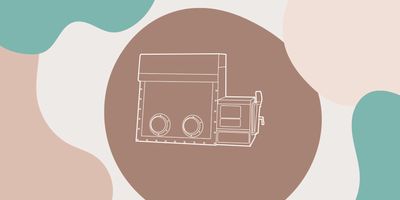Purchasing Guide: Glove Boxes
Gloves boxes are completely closed compartments that allow users to manipulate samples with gloves in a controlled environment
Gloves boxes are completely closed compartments ranging in size from a few cubic feet to several hundred cubic feet and differ from other safety enclosures in two respects: (1) users can introduce articles into glove boxes and manipulate them inside the unit through ports fitted with gloves, and (2) glove boxes can maintain an atmosphere that differs from the surrounding environment. For a list of glove box manufacturers, see our online directory: LabManager.com/glove-box-manufacturers
5 Questions to Ask When Buying a Glove Box:
- What applications are you using the glove box for? This will help determine your desired specifications, like an oxygen-free atmosphere.
- Are the zones for incubation and processing separated? This helps prevent contamination, which is extra important if you use the glove box for cell culture.
- How much will the glove box cost to acquire and maintain? Are warranties offered? Custom glove boxes are the most expensive, so determine if a standard model can fit your needs or if minor customizations can be made to an off-the-shelf model.
- What are your future needs? This will help determine if a small unit is the best option or if a larger unit that can accommodate future expansion is required.
- What sort of safety features does the glove box have? These are especially important if you are working with hazardous materials.
Customized Glove Boxes
Some manufacturers offer custom-built, modular glove boxes that can be outfitted to best suit your application and type of sample. These customized glove boxes offer users more control over an experiment’s environmental condition, which can heighten quality, experimental reproducibility, and user safety.
Safety Tip
Regularly inspect the gloves on your box for tears and pinhole leaks. Consider investing in a glove leak detector that can locate perforations invisible to the human eye. It’s also a good idea to keep extra gloves and o-rings in storage to minimize downtime if a tear or leak occurs.

